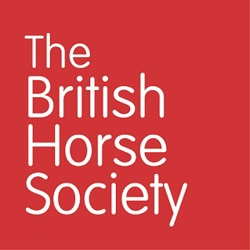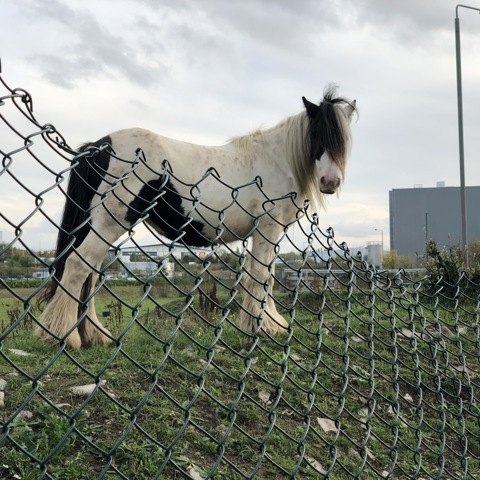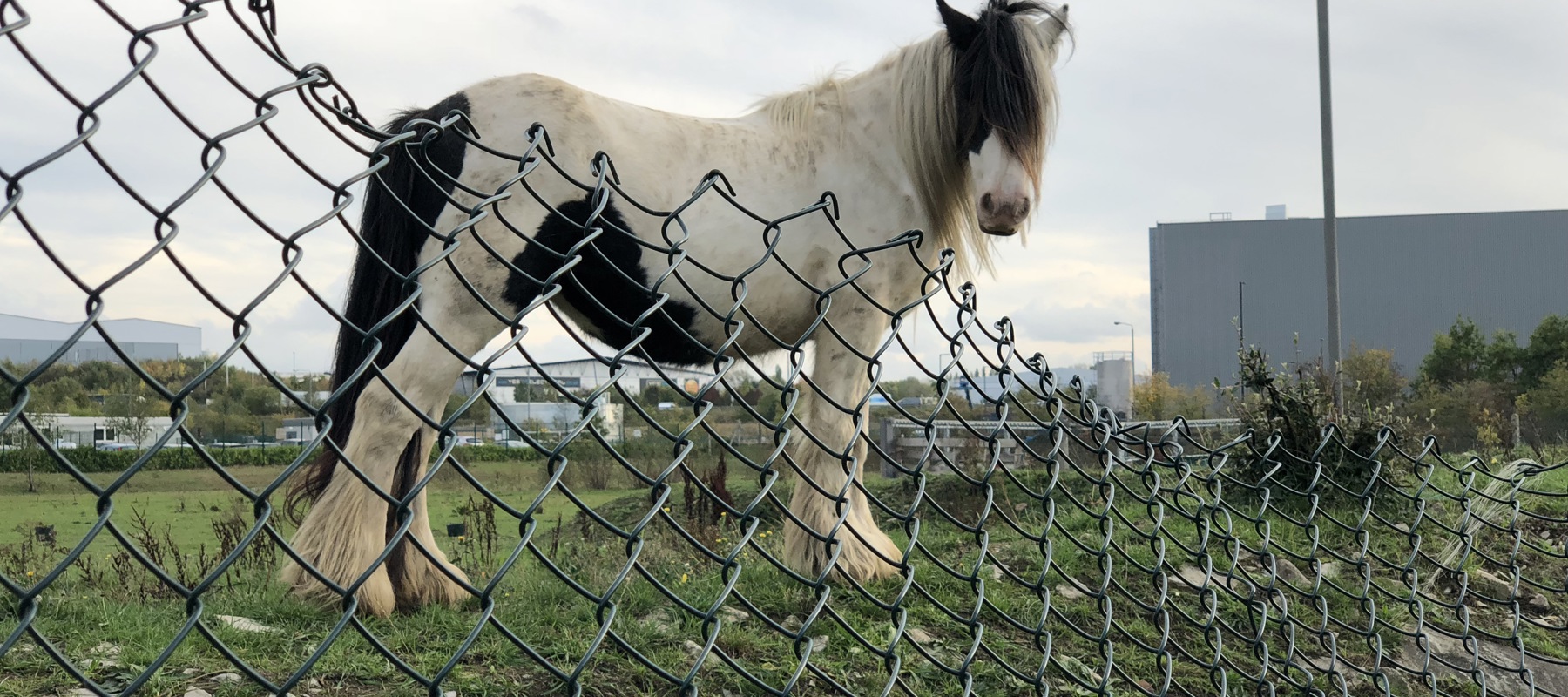However, various legislation aims to allow enforcement authorities and private landowners to work together to protect the public and the environment from the nuisance caused by abandonment, straying and fly-grazing of horses.
What is the relevant legislation?
In England, the Animals Act 1971 was amended to include the Control of Horses Act 2015, providing landowners with additional rights to deal with horses unlawfully grazing on their land. The Control of Horses Act 2015 should be viewed in conjunction with the Animals Act 1971.
Download the Control of Horses Act 2015
Wales has a similar piece of legislation (The Control of Horses (Wales) Act 2014). Therefore the information below applies to both England and Wales. However, this legislation does not cover Scotland and Northern Ireland.
In Northern Ireland, if horses are abandoned on your land, you will need to contact the Police Service of Northern Ireland (PSNI). In most circumstances, the PSNI will issue an incident number, and they will then advise you to display an abandonment notice. If the horses are not removed within two weeks, ownership will be automatically transferred to you as the landowner.
Why do we need this legislation?
Fly-grazing, straying, or abandoned horses present numerous difficulties for landowners, the public and the horses themselves. For example:
- Horses may present a risk to public safety, particularly when left on public or private land, such as parks or residential property
- Horses can negatively impact the land, particularly where grazing is already poor, as the land can become poached, and horses may damage fencing while trying to access better grazing
- The cost of dealing with unlawfully grazed horses can be substantial, often running into many thousands of pounds
- Horses that are not properly cared for can quickly become a welfare concern
- Cases of neglected and starving horses are often due to abandonment
Who does the legislation affect?
The act affects those who, either intentionally or unintentionally, allow their horses to graze on land without the landowner’s permission.
This includes abandonment, straying, fly-grazing and situations where the landowner has withdrawn permission for the horse to graze on their land.
Further information
What should I do if a horse is abandoned on my property (in England)?
chevron-down
chevron-up
In England, the horse(s) can be detained on the land or detained and removed by an equine bailiff company.
Within the first 24-hour period of detention:
- You are legally required to inform the police that you believe horses are illegally grazing on your land and that you have detained them under the Control of Horses Act 2015
- Complete a notice template (Notice 3 s.7C (2)(a)) and give it to the officer in charge of the police station
- Display a notice (Notice 1 s.7C Detention) on the field gate where the horse is being fly-grazed or in a prominent position near the horse if tethered
- If you know who the owner of the horse is, you must also serve them a notice (Notice 2 s.7C (2)(b) Owner)
- Notices should include the time and date, and some contact details, but we recommend private landowners need agreement from the police before adding their contact details or should employ the services of a reputable Bailiff company
- It is useful to take photographic evidence of the notice displayed to prove that it has been served if removed or destroyed
You or the bailiff company must continue to detain the horse for four working days (96 hours; not including weekends or bank holidays) unless the owner claims the horse before this time.
What should I do if a horse is abandoned on my property (in Wales)?
chevron-down
chevron-up
If you live in Wales and find horses left on your land, you must contact the Local Authority as they have the power to detain the horse(s), but you do not. In Wales, the detention period is seven days.
What if someone comes forward to claim back the horse?
chevron-down
chevron-up
The owner has the right to claim back their horse within the detention period. If someone comes forward to claim the horse, you should check that they are the owner:
- If they can produce a valid passport in their name for the horse, this is a good indication that they are the horse's owner.
- If they cannot produce a passport, photos of the horse, vet bills, a bill of sale or an accurate description are also acceptable methods of identifying an owner.
What if a horse is not claimed back?
chevron-down
chevron-up
If the owner does not claim their horse within the detention period, ownership passes to the person detaining the horse.
You can now keep or dispose of the horse as you see fit. This can include selling or rehoming a horse, or arranging for a horse to be humanely destroyed.
Remember, it is important to record all your actions so that you can prove that you have acted within the law.
If I sell the horse, can I keep the sale proceeds?
chevron-down
chevron-up
If the horse is not claimed by the owner within four days of detention, ownership of the horse is legally transferred to you as the person detaining the horse. Therefore, you are within your rights to keep any proceeds of the sale.
Do I need to get a passport for the horse?
chevron-down
chevron-up
Before you sell the horse, they need to have a passport as it is an offence to buy, sell or rehome a horse without a passport.
If the horse has previously been issued with a passport, then you must apply for a duplicate passport from the organisation that originally issued the passport.
You might be able to find out whether the horse previously had a passport by scanning for a microchip. You can then check the microchip number with each passport issuing organisation to see if the horse is registered with them. You can find the full list of passport issuing organisations on the DEFRA website.
If the horse doesn't have a microchip, it might mean that they never had a passport issued to them. Alternatively, a passport might have been issued before 2009 when microchipping became mandatory.
If there is any doubt whether the horse has previously had a passport, then a replacement passport must be issued. A replacement passport service is available through the BHS by contacting the BHS passport administrator on 02476 840574 or at passports@bhs.org.uk.
Who is liable if the horse is injured?
chevron-down
chevron-up
You are responsible for any injury caused to the horse while they are on your land. You are also responsible for providing adequate and appropriate food and water, shelter and veterinary care under sections 4 and 9 of the Animal Welfare Act 2006.
However, you cannot be held liable for any injury or neglect caused to a horse before it came to be on your land. Therefore, we advise that you call a vet when you first notice a horse on your land so that the horse's condition can be checked and recorded.
What can I do if the horse has caused damage to my land?
chevron-down
chevron-up
If an owner comes forward within four working days, they would be liable for any damage caused by any of their horses to your land.
We advise that you take photographs of any damage caused and keep receipts of any repair work you have had done.
As this is a civil matter, you need to seek legal advice about claiming back this money. Gold members of the BHS have access to a free legal helpline which you can call for advice.
Can I claim back the expense of looking after the horse?
chevron-down
chevron-up
You can claim reasonable expenses for costs accrued during the detention period or whilst trying to trace the original owner of the horse should an owner come forward.
Again, claiming this money back may be challenging and you may need to seek legal advice on how to do this. You will also need to provide proof of these costs.
How can I avoid Fly-grazing on my land?
chevron-down
chevron-up
- Plough unused fields so that your land is less attractive to potential fly-grazers
- Remove water troughs
- Put locks on all gates and entrances to your fields
- Block entrances to your fields with large rocks, banks of earth or deep ditches
- Keep up to date records to prove your ownership of the land
What should I do if a horse is being fly-grazed on land owned by the local authority?
chevron-down
chevron-up
Contact the local authority to inform them that a horse is being fly-grazed on their land. Local authorities may or may not choose to invoke the legislation to remove the horse from the land.
If the local authority decides to take action, they may employ an equine bailiff to seize and detain the horse. In this instance, the local authority remains responsible for the horse's welfare. They have the right to detain the horse for four working days (seven days in Wales). After this time, ownership of the horse passes to the local authority.
Notice downloads
Notice 1 s.7C Detention
chevron-down
chevron-up
Put this notice where the horses were being fly-grazed, such as the gate of the field.
Notice 2 s.7C(2)(b) Owner
chevron-down
chevron-up
Use this notice if you know who the owner of the horse(s) is and so must serve a notice to them.
Notice 3 s.7C(2)(a) Officer in charge of a police station
chevron-down
chevron-up
Use this notice to inform the police that you have detained the horses.


